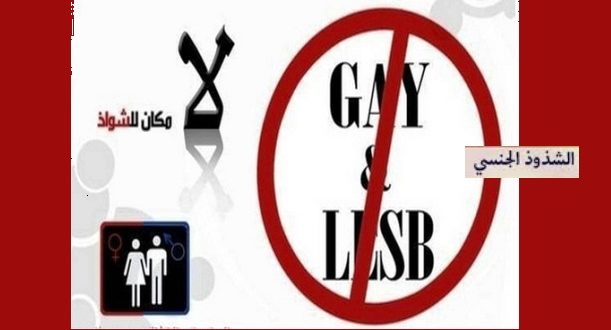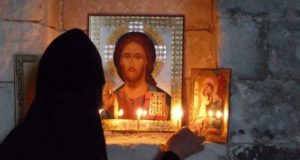أصدر الكرسي الرسولي بيانًا اليوم، حول ما إذا كانت الكنيسة الكاثوليكية لديها القدرة على مباركة الإتحادات المثلية.
عندما نُشر فيلم وثائقي عن البابا فرانسيس قبل عدة أشهر، فسره الليبراليون ومن يسمون نفسهم “تقليديون” أن الكنيسة الكاثوليكية والبابا باركوا الإتحادات المثلية أو على الأقل تم إعطاء موافقة مبطنة.
نشر مجمع العقيدة والإيمان اليوم بيان يؤكد فيه موقف الكنيسة الثابت فيما يخص هذا الموضوع ويسكت كل من يحرف أو يفسر تعاليم الكنيسة والبابوات على هواه.
رداً على سؤال “هل للكنيسة القدرة على منح البركة لاتحادات الأشخاص من نفس الجنس؟”، أجاب مجمع عقيدة الإيمان بـ “لا”.
في بيان مختصر:
أوضح مجمع العقيدة أن البركات هي قدسيات، وبالتالي، من أجل التوافق مع طبيعتها، عندما يتم مباركة علاقات إنسانية معينة، من الضروري أن يكون ما يتم مباركته مرتب بشكل موضوعي وإيجابي للحصول على النعمة والتعبير عنها، وفقًا لمقاصد الله المكتوبة في الخليقة، والتي أعلنها المسيح الرب بالكامل.
“لهذا السبب، ليس من المشروع منح البركة على العلاقات، أو الشراكات، حتى المستقرة، التي تتضمن نشاطًا جنسيًا خارج نطاق الزواج (أي خارج الاتحاد الذي لا ينفصم بين رجل وامرأة مفتوح في حد ذاته لإعطاء الحياة)، كما هو الحال في حالات الإتحاد بين أشخاص من نفس الجنس”.
تمت الموافقة على الحكم والمذكرة للنشر من قبل البابا فرانسيس وتم توقيعها من قبل محافظ مجمع العقيدة الكاردينال لويس لاداريا والسكرتير رئيس الأساقفة جياكومو موراندي.
Article of Commentary on the Responsum ad dubium
The new statement of the Congregation for the Doctrine of the Faith is a response to a question – in classical terms, to a dubium – occasioned, as is normally the case, by pastors and faithful who require clarification and guidance concerning a controversial issue. When questions are triggered by problematic assertions or practices in important areas of Christian life, an affirmative or negative response is provided, along with a statement of the reasoning that supports the response presented. The purpose of such interventions is to help the universal Church to respond better to the demands of the Gospel, to settle disputes, and to foster healthy communion among the holy people of God.
In the present case, a disputed question has arisen in the framework of the “sincere desire to welcome and accompany homosexual persons, to whom are proposed paths of growth in faith” (Explanatory Note), as indicated by the Holy Father Pope Francis at the conclusion of two Synodal Assemblies on the family: “so that those who manifest a homosexual orientation can receive the assistance they need to understand and fully carry out God’s will in their lives” (Apostolic Exhortation Amoris laetitia, n. 250). These words are an invitation to evaluate, with appropriate discernment, projects and pastoral proposals directed to this end. Among these are blessings given to the unions of persons of the same sex. It is therefore asked whether the Church has the power to impart her blessing: this is the formula contained in the quaesitum.
The answer – the Responsum ad dubium – is explained and motivated in the attached Explanatory Note of the Congregation for the Doctrine of the Faith, dated February 22, 2021, to the publication of which Pope Francis himself has given his assent.
The Note is centered on the fundamental and decisive distinction between persons and the union. This is so that the negative judgment on the blessing of unions of persons of the same sex does not imply a judgment on persons.
Persons first and foremost. In their regard, what is stated in n. 4 of the Considerations Regarding Proposals to Give Legal Recognition to Unions Between Homosexual Persons written by the same Congregation, and recalled by the Catechism of the Catholic Church, must never be forgotten: “According to the teaching of the Church, men and women with homosexual tendencies ‘must be accepted with respect, compassion, and sensitivity. Every sign of unjust discrimination in their regard should be avoided’ (2358)”. This teaching is recalled and reaffirmed by the Note.
As for unions of persons of the same sex, the response to the dubium “declares illicit any form of blessing that tends to acknowledge their unions as such”. The Explanatory Note bases the illicitness on three interconnected reasons.
The first reason arises from the truth and value of blessings. They belong to the genre of sacramentals, which are “liturgical actions of the Church” that require consonance of life with what they signify and generate. There are meanings and outcomes of grace that the Note explains in concise form. Consequently, a blessing on a human relationship requires that it be ordered to both receive and express the good that is pronounced and given by the blessing.
Thus we come to the second reason: the order that makes one fit to receive the gift is given by the “designs of God inscribed in creation, and fully revealed by Christ the Lord”. These are designs to which “relationships, or partnerships, even stable, that involve sexual activity outside of marriage” do not correspond, for they are “outside the indissoluble union of a man and a woman open in itself to the transmission of life.” However, not only these unions – as if the problem were only such unions – but any union that involves sexual activity outside of marriage, which is illicit from the moral point of view, according to the perennial teaching of the ecclesial Magisterium.
This all implies a power that the Church does not possess, because she does not have the power over God’s designs, which would otherwise be rejected and denied. The Church is not the arbiter of these designs and the truths they express, but their faithful interpreter and witness.
The third reason is to avert an error into which one would easily be led: that of assimilating the blessing of unions of persons of the same sex to that of matrimonial unions. Because of the connection between blessings of persons and the sacraments, the blessing of such unions could in a sense imply “a certain imitation or analogue of the nuptial blessing”, imparted to a man and a woman united in the sacrament of Matrimony. This would be erroneous and misleading.
For the above reasons “the blessing of homosexual unions cannot be considered licit”. This statement in no way detracts from the human and Christian consideration in which the Church holds each person. So much so that the response to the dubium “does not preclude the blessings given to individual persons with homosexual inclinations who manifest the will to live in fidelity to the revealed plans of God as proposed by Church teaching”.
Vatican’s doctrinal office: Catholic Church cannot give blessings to same-sex unions
Vatican City, Mar 15, 2021 / 05:20 am MT (CNA).- The Vatican’s doctrinal office on Monday clarified that the Catholic Church does not have the power to give liturgical blessings of homosexual unions.
Answering the question, “does the Church have the power to give the blessing to unions of persons of the same sex,” the Congregation for the Doctrine of the Faith responded, “negative.”
In an accompanying note, the doctrine office explained that blessings are sacramentals, and “consequently, in order to conform with the nature of sacramentals, when a blessing is invoked on particular human relationships, in addition to the right intention of those who participate, it is necessary that what is blessed be objectively and positively ordered to receive and express grace, according to the designs of God inscribed in creation, and fully revealed by Christ the Lord.”
“Therefore, only those realities which are in themselves ordered to serve those ends are congruent with the essence of the blessing imparted by the Church,” the CDF said.
“For this reason, it is not licit to impart a blessing on relationships, or partnerships, even stable,
that involve sexual activity outside of marriage (i.e., outside the indissoluble union of a man and a woman open in itself to the transmission of life), as is the case of the unions between persons of the same sex.”
The ruling and note were approved for publication by Pope Francis and signed by CDF prefect Cardinal Luis Ladaria and secretary Archbishop Giacomo Morandi.
The CDF’s note did not state the origin of the dubium submitted to the doctrinal office, but noted that “in some ecclesial contexts, plans and proposals for blessings of unions of persons of the same sex are being advanced.”
In recent years, German bishops in particular have been increasingly outspoken in demanding “discussions about an opening” towards acceptance of practiced homosexuality and the blessing of homosexual unions in the Church.
Following consultations in Berlin in late 2019, the chairman of the marriage and family commission of the German bishops’ conference declared that the German bishops agreed that homosexuality is a “normal form” of human sexual identity.
The topic also plays a central role in one of four forums that constitute the controversial “Synodal Process” underway in Germany.
The CDF explained in 2003 that “the Church teaches that respect for homosexual persons cannot lead in any way to approval of homosexual behavior or to legal recognition of homosexual unions.”
German bishops who have publicly voiced support for the blessing of same-sex unions in the Catholic Church include Cardinal Reinhard Marx of Munich and Freising, Bishop Georg Bätzing of Limburg, Bishop Franz-Josef Bode of Osnabrück, and Bishop Heinrich Timmerervers of Dresden-Meißen.
Bätzing, the president of the German bishops’ conference, in December 2020 called for changes to the section on homosexuality in the Catechism of the Catholic Church. Expressing openness to blessings of homosexual unions, he said, “we need solutions for this.”
On Feb. 23, Bishop Peter Kohlgraf of Mainz defended his support for a book of blessings and rites for homosexual unions. The book followed a May 2020 publication from Austria about how same-sex couples might receive a formal, liturgical blessing. Kohlgraf suggested that Catholics with homosexual inclinations cannot all be expected to live chastely.
The call for liturgical blessings of same-sex unions is part of a wider push by some German bishops to change the Church’s teaching on a number of issues, including on the sacraments of priestly ordination and marriage.
CNA’s German partner agency, CNA Deutsch, reported that Bätzing has suggested that the Vatican Synod of Bishops on synodality, scheduled for October 2022, could help implement German “Synodal Way” resolutions not only in Germany, but throughout the Catholic Church.
 Agoraleaks Agoraleaks
Agoraleaks Agoraleaks







